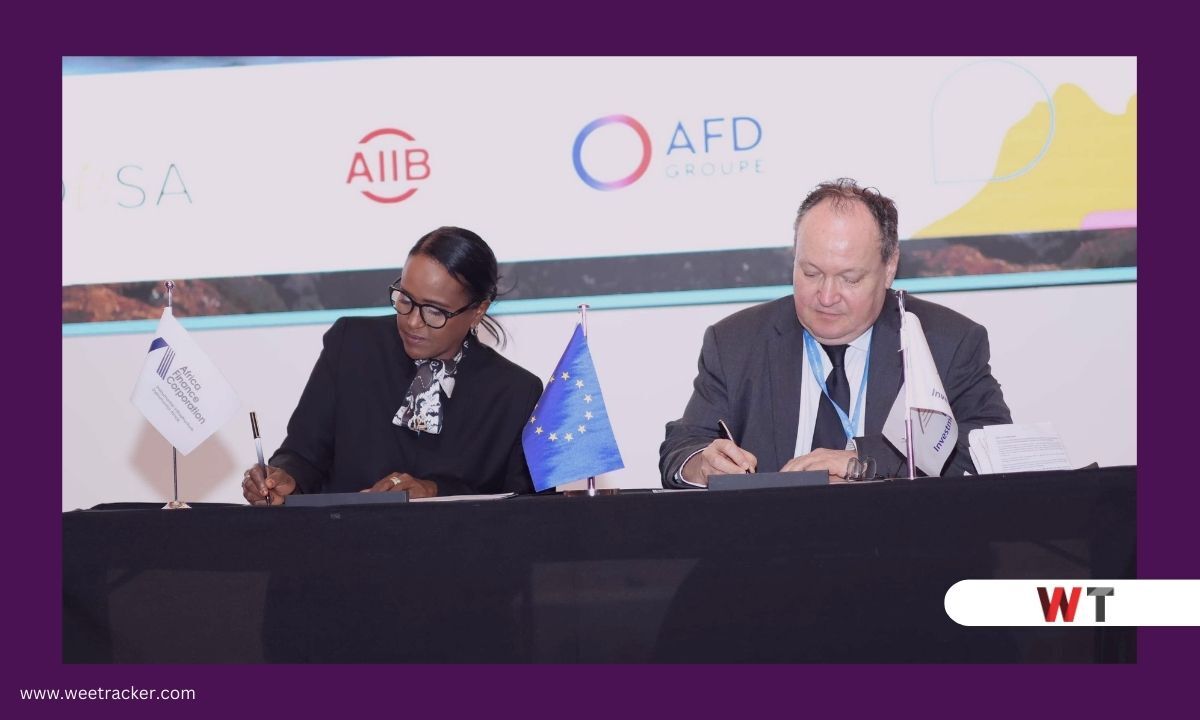EIB Joins AFC In USD 750 M Fund To Build Climate-Resilient Future In Africa

A major initiative to fortify Africa’s infrastructure against climate change took centre stage at the Finance in Common Summit in Cape Town, South Africa, where the European Investment Bank (EIB) announced its commitment to the USD 750 M Infrastructure Climate Resilient Fund (ICRF).
Led by the Africa Finance Corporation (AFC) and managed by its asset management arm, AFC Capital Partners (ACP), the fund is designed to embed climate resilience into Africa’s critical infrastructure while mobilizing large-scale investment to address the scarcity of equity capital for greenfield infrastructure projects in Africa.
The Fund leverages a powerful partnership between three major institutions— the European Investment Bank (EIB), Africa Finance Corporation (AFC), and the Green Climate Fund (GCF)—uniting their expertise, capital, and commitment to climate resilience. While the AFC provides infrastructure expertise, the EIB brings financial strength, and the GCF offers first-loss protection, ensuring lower investment risks and broader private sector participation.
As part of this commitment, the EIB pledged USD 52.48 M to the fund. This investment complements a record-breaking USD 253 M from the Green Climate Fund (GCF)—the largest equity investment GCF has ever made in Africa. With additional backing from the Nigeria Sovereign Investment Authority (NSIA) and two major African pension funds, the initiative signals growing confidence in Africa’s ability to lead climate adaptation efforts.
Speaking at the signing ceremony, EIB Vice-President Ambroise Fayolle emphasized the significance of the investment. “The EIB is committed to supporting private sector investment in climate-resilient infrastructure, especially in regions most vulnerable to climate change.”
Bridging the Infrastructure Gap in a Climate-Vulnerable Continent
Africa, the world’s most climate-vulnerable continent, faces an urgent need for infrastructure that can withstand extreme weather events, rising temperatures, and shifting environmental conditions. The ICRF aims to embed resilience at every stage of infrastructure development—from design and construction to operation—ensuring that critical projects can withstand the intensifying impacts of climate change.
To achieve this, the fund will de-risk private investment using blended finance mechanisms, making climate-resilient projects more attractive to investors. It also introduces innovative tools such as climate risk parametric insurance, offering immediate financial relief in the wake of climate-related disasters.
Beyond financing, the fund will offer technical assistance, helping African nations assess climate risks and develop robust adaptation strategies.
ACP’s fund aims to demonstrate that Africa can pursue a climate-resilient and sustainable development path by addressing market failures, mitigating environmental risks, strengthening logistics, trade, and industrialization, and accelerating the continent’s digital and energy transition.
“This fund is crucial for bridging the financing gap for climate adaptation in Africa,” said AFC President & CEO Samaila Zubairu. “By focusing on climate-resilient infrastructure, we are not only securing Africa’s economic future but also creating opportunities for sustainable growth and job creation across the continent. We are proud to partner with the EIB and other investors who share our vision for increasing the impact of climate finance.”
The Path to Unlocking USD 3.7 B for Africa’s Future
The launch of the USD 750 M ICRF is only the beginning. Through strategic partnerships and co-financing mechanisms, the fund is expected to mobilize up to USD 3.7 B for infrastructure projects across Africa, targeting critical sectors such as transport, clean energy, digital connectivity, and industrial development.
Each investment will undergo rigorous climate risk assessments, ensuring that infrastructure projects are climate-proofed and aligned with long-term sustainability goals.
Overall, the ICRF is expected to support 10 to 12 large-scale projects across Africa once operational, each selected for its ability to drive sustainable growth while bridging the continent’s infrastructure gap.
This is expected to create thousands of jobs during construction and long-term employment once projects are operational. It also aligns with global sustainability goals, including the EU’s Global Gateway strategy, the African Union’s Agenda 2063, and the UN Sustainable Development Goals. The EIB’s investment directly supports its climate objectives, which include dedicating 50% of its financing to climate action and 15% specifically to adaptation by 2025.
As climate risks intensify, the Infrastructure Climate Resilient Fund stands as a model for how strategic investment can drive both economic growth and climate resilience.
With strong backing from African and international partners and billions in funding, the initiative is set to boost Africa’s infrastructure landscape, ensuring that the continent’s economic growth is not only sustainable but also resilient to the challenges of climate change.